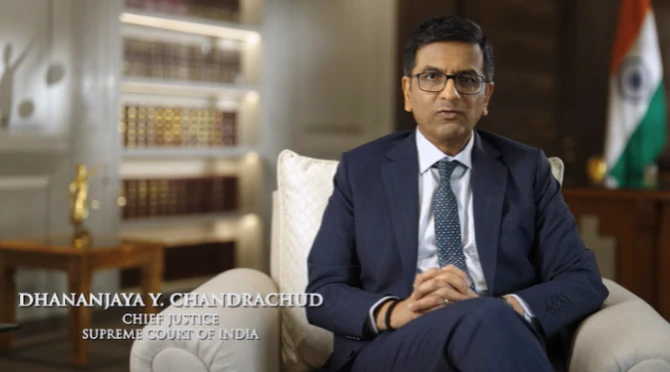
Chief Justice of India CJI DY Chandrachud, on Saturday, highlighted the need for enhanced infrastructure in courts to address the growing backlog of cases.
Speaking at the 37th convocation of the Postgraduate Institute of Medical Education and Research (PGIMER), he also mentioned the use of various methods, such as Lok Adalats, to reduce the case burden.
Addressing concerns about the rising number of pending cases, CJI Chandrachud drew a parallel with hospitals, stating that just as more patients visit hospitals due to their trust in them, the increasing number of court cases reflects the public’s faith in the judiciary. “Like in hospitals, the infrastructure in courts needs to be expanded,” he emphasized.
The CJI noted that modern technology, including Artificial Intelligence (AI), is being utilized to make court judgments more accessible by translating them into regional languages. “From 1950 to 2024, around 37,000 Supreme Court verdicts have been delivered, of which 22,000 have been translated into Punjabi and more than 36,000 into Hindi. We are working to translate verdicts into all regional languages,” he said.
He also mentioned the significant impact of the recent Lok Adalat, where approximately 1,000 cases were resolved in just 5 days. Additionally, CJI Chandrachud shared that during this year’s summer vacation, 21 Supreme Court benches managed to hear about 4,000 cases, resulting in the disposal of 1,170 cases.
Regarding the language barrier in courts, the CJI acknowledged that English is predominantly used, which can make it challenging for common people to understand their cases. To address this, AI is being employed to translate verdicts into regional languages.
He also spoke about the ongoing live streaming of Supreme Court hearings, noting that several technological initiatives have been implemented to improve transparency and accessibility.
When asked about the shortage of judges, CJI Chandrachud explained that multiple factors contribute to the issue, particularly in states like Uttar Pradesh, where the Allahabad High Court has a sanctioned strength of 160 judges, making it difficult to create the necessary infrastructure. However, he assured that there are no vacancies in the Supreme Court, with all 34 positions filled during his tenure.
CJI Chandrachud underscored the importance of filling vacancies in the district judiciary, urging high courts and state governments to prioritize this issue.




